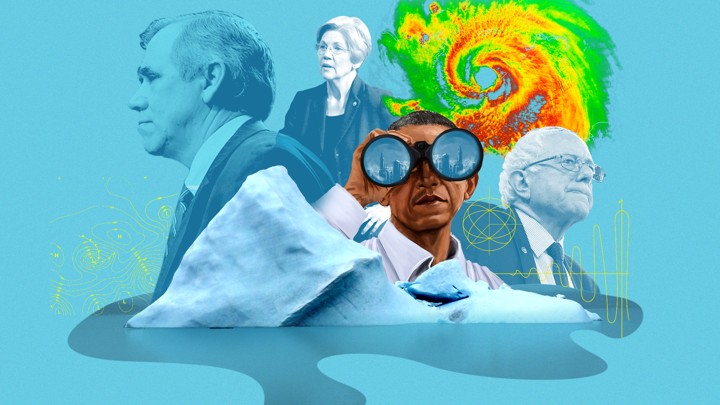
Every Democratic presidential candidate dedicated a substantial part of the first three debates to climate change issues. No other issue has been highlighted that way since the beginning of the presidential race.
When Barack Obama was getting ready for his reelection campaign in 2012, he faced a very specific question. TransCanada had plans for a huge oil pipeline project that would transport oil from West Canada to the Texas refineries located in the Gulf of Mexico.
However, since the oil pipeline known as Keystone XL was going to cross the Canada-U.S. border, it required TransCanada to obtain the Obama administration’s approval before it could be built.
Politically, the situation was a nightmare for Obama since it ran counter to two pillars of the Democratic Party’s voter base: on one side, there were companies that approved the project, and on the other, there were the environmentalist groups who opposed it.
It was what is known as a Catch-22: whatever decision the president took, it was going to anger part of his electoral base. Obama procrastinated, postponed and imposed delay after delay before showing his hand. Then in January 2012, 10 months before the the election, Obama announced he was categorically opposed to Keystone XL.
This decision, and the legal and political battles that followed until the very end of Obama’s second term, even caused diplomatic fallout with the Canadian government, led at the time by Stephen Harper, who strongly supported the project.
While the world did not suddenly stop after Obama’s decision, the political dynamic concerning the environment definitely changed. More specifically, the Democratic Party became increasingly more aggressive in promoting environmental conservation and the fight against not only pollution in general, but also specific industries in the energy area.
That is how, four years later in 2016, Obama’s successor, Hillary Clinton, blatantly campaigned on a promise that she was “going to put a lot of coal miners out of business!”
Today, as the 2020 presidential election race gets started, the major Democratic candidates are competing fiercely to determine which one is going to be the most audacious on the topic.
Even the current favorite, former Vice President Joe Biden, who is usually perceived as the most moderate of the candidates, promised a climate plan costing about $2 billion, with a goal of nonexistent greenhouse gas emissions before 2050 and a complete elimination of fossil fuels. His left-leaning competition, including Massachusetts Sen. Elizabeth Warren, even promises elimination of greenhouse gas emissions from automobile within 10 years.
The whole Democratic presidential candidate pool spent a significant amount of the first three debates on the issue of climate change. They also took part in special events on the matter, such as a seven-hour TV marathon organized by the CNN at the beginning of the month. No other issue has been highlighted that way since the race started.
Despite all this, there is no guarantee that a Democratic president would actually implement major environmental measures. However, not unlike the subject of firearms, even though the legislature is pretty much at a standstill in Washington for now, the changes within the Democratic Party are definitely real, and their effects are probably only just starting to show.

Leave a Reply
You must be logged in to post a comment.